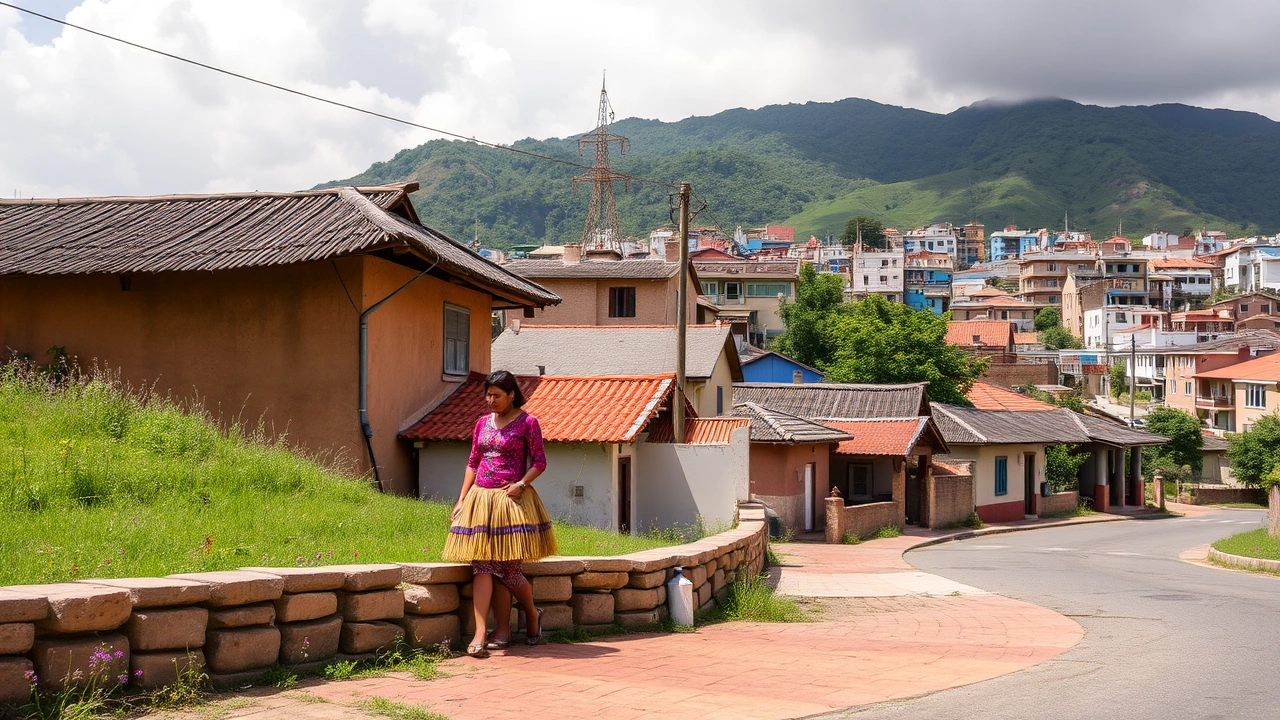
 Published on and written by Cyril Jarnias
Published on and written by Cyril Jarnias
Navigating the complex world of real estate transactions can be confusing, especially in a foreign country like Bulgaria. The crucial role of notaries in these procedures cannot be underestimated, as they guarantee the legality and security of transactions. However, the topic of notary fees, often a source of confusion, deserves special attention to avoid any unpleasant surprises. This article provides a comprehensive guide to how notaries operate in Bulgaria, detailing not only their responsibilities but also the various associated costs, to help readers anticipate and optimize their budget during their real estate investments.
Understanding the Notary’s Role in Property Purchase in Bulgaria
The Crucial Role of the Notary in Bulgarian Real Estate Transactions
In Bulgaria, the notary plays an essential role in the property purchase process, acting as a guardian of the transaction’s legality and security. Their main function is to meticulously verify all legal documents related to the property, including deeds of ownership, cadastral certificates, and building permits. This thorough verification ensures there are no disputes or encumbrances on the real estate.
The Bulgarian notary also serves as an impartial intermediary between the buyer and seller. They supervise the exchange of documents and funds, thereby ensuring that both parties’ interests are protected throughout the transaction. This mediation is particularly important for foreign buyers who may not be familiar with the nuances of the Bulgarian legal system.
Key Stages of Notarial Intervention
The notary’s intervention is particularly crucial during the signing of the deed of sale. At this stage, the notary verifies the parties’ identities, ensures all prerequisites have been met, and confirms that the deed’s content accurately reflects the agreement between the parties. Once the deed is signed, the notary proceeds with registering the property with the Registry Agency, thereby formalizing the property transfer.
Compliance with Local Regulations
The notary plays a key role in ensuring the transaction complies with all Bulgarian laws and regulations. They ensure that restrictions on land ownership for foreigners are respected and that all required taxes and fees are paid. This expertise is particularly valuable for international buyers who might not be aware of the subtleties of Bulgarian property law.
Costs and Fees of Notarial Services
Notary fees in Bulgaria are generally calculated as a percentage of the property’s value. They range between 0.1% and 1.5% of the purchase price, with a maximum cap of approximately 3,000 euros. These fees cover the preparation and certification of the deed of sale, as well as property registration. It’s important to note that a 20% VAT applies in addition to these fees.
Comparison with Other EU Countries
The notary’s role in Bulgaria is similar to that in other European Union countries, but with some notable differences. For example, unlike some countries where lawyers can perform certain notarial functions, in Bulgaria, only state-licensed notaries can authenticate real estate documents. Additionally, the Bulgarian system places greater emphasis on preliminary verification by the notary, providing an extra layer of security for real estate transactions.
Good to Know:
In Bulgaria, the notary plays a central role in property purchase by meticulously verifying legal documents and researching deeds of ownership to ensure the absence of disputes. They facilitate transaction security by serving as an intermediary between buyer and seller, and their intervention is crucial during the signing of the deed of sale and property registration, thereby guaranteeing the transaction’s legality according to local regulations. Their skills include verifying compliance with Bulgarian laws throughout the purchase and resolving any potential legal controversies. Notary fees in Bulgaria vary based on property value but are generally lower than in other EU countries like France, where the notary has a similar role but often with higher costs. Comparatively, although the notary’s function shares similarities with their European counterparts, the differences mainly lie in costs and certain procedural specifics.
Analysis of Notary Fees in Bulgaria
Definition and Nature of Notary Fees in Bulgaria
Notary fees in Bulgaria represent all costs associated with a notary’s services to legally authenticate and register transactions or documents. These fees are governed by the Notary and Notarial Activities Law, as well as the Notary Fee Schedule. They typically consist of the notary’s fees, administrative costs, and government taxes.
Composition of Notary Fees
The notary’s fees constitute compensation for their professional services. They are calculated according to a decreasing scale based on the transaction value.
Administrative fees cover costs related to document preparation, necessary research, and deed registration.
Government taxes notably include registration tax and property transfer tax, which are paid to the state.
Fee Calculation for Common Transactions
For purchasing real estate in Bulgaria, total notary fees generally represent between 2% and 5% of the sale price. For example, for an apartment valued at 100,000 BGN:
- Notary fees: approximately 1,000 BGN
- Administrative fees: 300 BGN
- Registration tax: 0.1% of the value, or 100 BGN
- Transfer tax: 2-3% of the value, or 2,000 – 3,000 BGN
The total notary fees would therefore amount to approximately 3,400 – 4,400 BGN, or 3.4% – 4.4% of the purchase price.
Comparison with Other EU Countries
Notary fees in Bulgaria are generally lower than in many Western European countries. For example, in France, these fees can reach 7-8% for purchasing older properties, while in Germany, they’re around 5-6%. Bulgaria therefore positions itself competitively in terms of notary costs within the EU.
Tips for Optimizing Notary Fees
Negotiate fees: Although rates are regulated, it may be possible to negotiate certain aspects of the notary’s fees, particularly for complex transactions.
Bundle deeds: If multiple deeds are necessary, having them drafted simultaneously can reduce overall fees.
Check eligibility for reductions: Certain categories of people, such as young couples or first-time buyers, may benefit from reductions on some notary fees.
Compare notaries: Rates can vary slightly from one notary to another, so comparing several offers can be advantageous.
Carefully prepare documents: Providing all necessary documents from the start can reduce the notary’s working time and potentially associated fees.
Good to Know:
Notary fees in Bulgaria are governed by the Notary and Notarial Activities Law, and mainly include notaries’ fees, administrative costs, and specific taxes. Fees are often calculated as a percentage of the transaction value, with, for example, approximately 1.5% to 3% for property purchases. For contract drafting, one can expect fixed fees based on the contract type. Compared to other EU countries like France or Germany, where fees may be higher or similar depending on the service, Bulgaria remains competitive. To reduce these costs, it’s advisable to compare fees from multiple notaries or negotiate rates for recurring services. Finally, administrative fees can be optimized by preparing all required documents in advance to avoid additional charges related to delays or errors in the process.
Decoding Hidden Costs of Property Purchase in Bulgaria
Hidden Costs of Property Purchase in Bulgaria
Acquiring real estate in Bulgaria may seem attractive due to relatively low prices compared to other European countries. However, buyers should be aware of various hidden costs that can add to the initial purchase price. These additional fees can represent a significant portion of the total budget and must be considered from the beginning of the purchase process.
Notary Fees and Taxes
Notary fees in Bulgaria are generally between 0.1% and 1.5% of the property value, with a maximum cap of approximately 3,000 euros. It’s important to note that a 20% VAT applies in addition to these fees. Property transfer taxes, also called conveyance duties, vary between 0.1% and 3% depending on the municipality. In Sofia, for example, the rate is set at 3% of the higher value between the tax assessment and purchase price.
Real Estate Agency Fees
Agency fees in Bulgaria are generally higher than in many Western countries. They can range between 3% (just for viewings, no follow-up or quality control of the property and notarial deeds) and 10% of the sale price, with a minimum often set at 2,000 euros for low-value properties. These fees are decreasing for high-value properties. It’s crucial to clarify from the beginning who will pay these fees, as they can be the responsibility of the seller, buyer, or shared between both parties.
Costs Related to Land Registration
Registering a real estate transaction with the Bulgarian cadastre incurs additional fees. These fees generally amount to 0.1% of the property value. Additionally, costs for obtaining various administrative documents necessary for registration should be anticipated, such as cadastral extracts and property certificates.
Additional Administrative Expenses
Buyers should also anticipate other administrative expenses, including:
- Costs for certified document translation (approximately 300-500 euros)
- Legal fees for property title verification (500-1,000 euros)
- Costs for establishing a limited liability company (EOOD) if purchasing through a legal structure (2,000 euros)
Regional and Urban Differences
Costs can vary considerably depending on the region and property type. In large cities like Sofia or popular Black Sea resorts, agency fees and municipal taxes tend to be higher. Conversely, in rural areas or small towns, these costs can be significantly lower. It’s therefore essential to inquire about local rates before committing to a purchase.
Impact on Overall Budget
For foreign buyers, these hidden costs can represent an unpleasant surprise if not properly anticipated. On average, one should plan for between 7% and 10% of the purchase price in additional fees. This amount can have a significant impact on the overall budget, particularly for those purchasing with tight financing.
The Importance of an Experienced Notary
Engaging a notary experienced in international transactions is crucial to avoid financial surprises. A good notary can not only explain all involved costs in detail but also help negotiate certain fees and ensure all legal procedures are correctly followed. It’s recommended to choose an independent notary, rather than one suggested by the real estate agency or seller, to guarantee impartial representation of your interests.
Tips for Managing Hidden Costs
To better manage these additional fees, buyers can:
- Request a detailed estimate of all costs before committing
- Negotiate with the seller to share certain fees
- Compare offers from multiple real estate agencies and notaries
- Plan a safety margin of at least 10% of the purchase price to cover unexpected expenses
By considering these aspects and planning carefully, buyers can avoid unpleasant surprises and complete their property purchase in Bulgaria with peace of mind.
Good to Know:
Buying real estate in Bulgaria can involve hidden costs that, if not anticipated, can significantly affect a foreign buyer’s budget. Notary fees, generally around 2-3% of the property price, are unavoidable but vary by region. Additionally, one should anticipate the property transfer tax, often between 0.1% and 3%, as well as real estate agency fees that can represent up to 6% of the purchase price. Land registration costs and other administrative expenses, although often forgotten, add to the final amount. Cost differences between Sofia and rural areas can be significant, with urban areas generally being more expensive. To limit financial surprises, consulting an experienced notary from the start is essential. A notary can provide a more accurate estimate of all related fees and help navigate local regulations, thereby ensuring a transaction without surprises.
Disclaimer: The information provided on this website is for informational purposes only and does not constitute financial, legal, or professional advice. We encourage you to consult qualified experts before making any investment, real estate, or expatriation decisions. Although we strive to maintain up-to-date and accurate information, we do not guarantee the completeness, accuracy, or timeliness of the proposed content. As investment and expatriation involve risks, we disclaim any liability for potential losses or damages arising from the use of this site. Your use of this site confirms your acceptance of these terms and your understanding of the associated risks.

































































